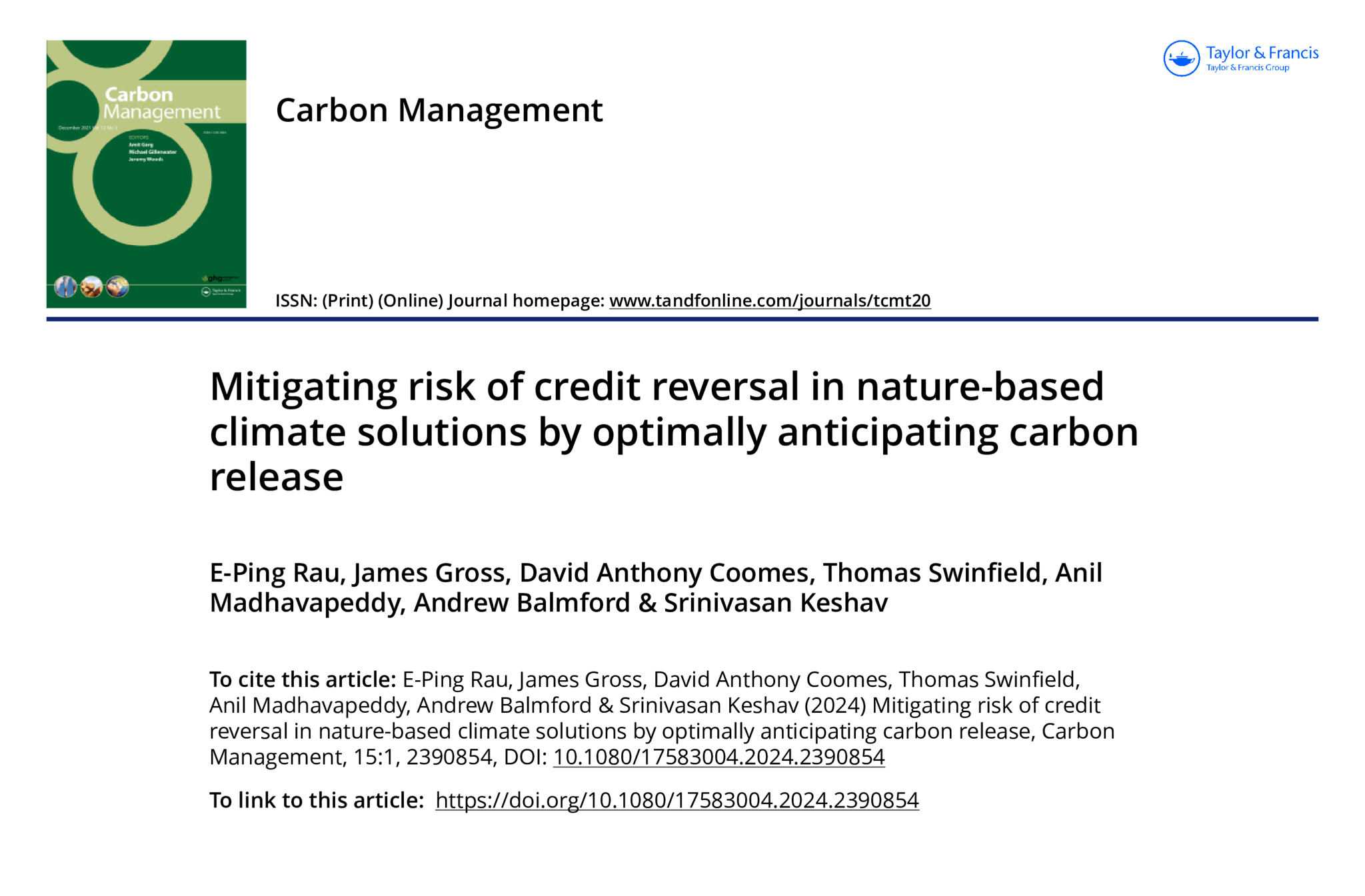Mitigating risk of credit reversal in nature-based climate solutions by optimally anticipating carbon release
. In Carbon Management. .
Abstract
Nature-based climate solutions supply carbon credits generated from net carbon drawdown in exchange for project funding, but their credibility is challenged by the inherent variability and impermanence of drawdown. By evaluating drawdown benefits from a social cost of carbon perspective, project developers can enhance credibility and estimate impermanence by conservatively anticipating drawdowns to be eventually released following a release schedule, issuing additional credits when actual release is less severe than anticipated.
We demonstrate how we can use ex post observations of drawdowns to construct optimal release schedules that limit the risk of failing to generate credits (non-delivery). We simulate both theoretical and real-life projects to examine how this approach balances the trade-off between generating credits evaluated as more permanent and limiting non-delivery risk. We discuss how this approach incentivises project performance and provides a pragmatic solution to challenges facing larger-scale implementation of nature-based climate solutions.
